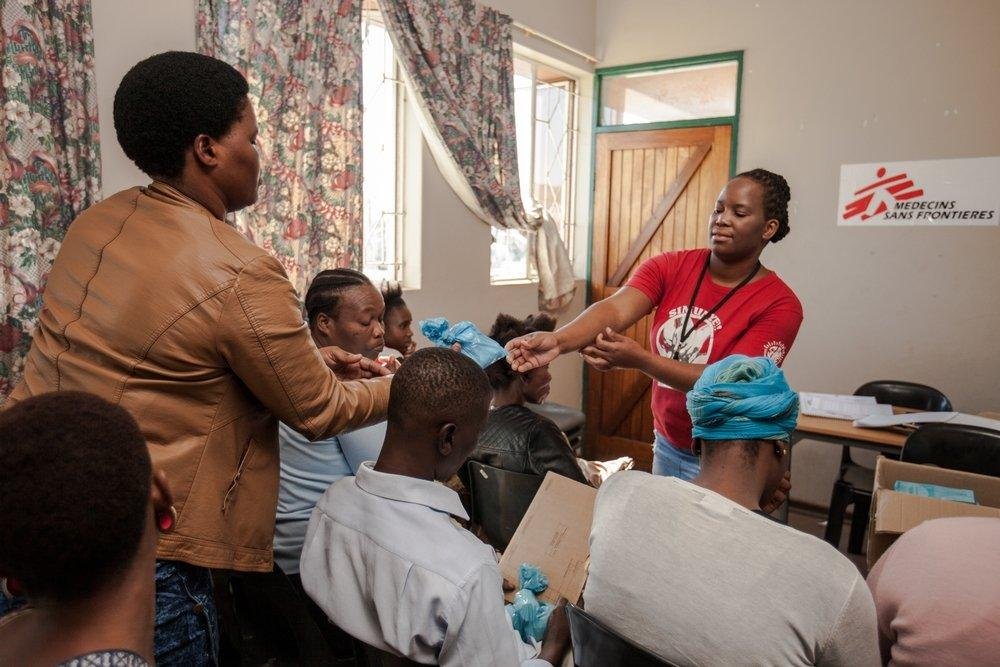Escalating Violence Against Healthcare Workers in South Sudan
Médecins Sans Frontières (MSF) has strongly condemned the abduction of a Ministry of Health (MoH) staff member from an MSF ambulance in South Sudan’s Morobo County, Central Equatoria State, on 25 July 2025. The incident occurred around 10:00 am and involved armed individuals who intercepted the ambulance during a routine transport of patients returning to Morobo after receiving advanced medical care in Yei. Although the staff member was released unharmed the following day, the attack underscores a troubling pattern of violence targeting healthcare workers in the region.
The MoH staff member was accompanying patients who had been referred for specialized treatment when the ambulance was stopped by armed individuals. They forced the staff member to leave the vehicle and took her against her will. The MSF driver, other staff members, and patients were allowed to continue their journey without further interference.
Dr. Ferdinand Atte, MSF’s head of mission in South Sudan, expressed deep concern over the incident. “What we are witnessing is a disturbing and unacceptable trend, where the impartial provision of healthcare services faces indiscriminate attacks,” he said. “This incident is not just an attack on one individual; it is a direct assault on the healthcare system meant to serve the most vulnerable in our communities.”
Rising Threats to Healthcare Services
In recent months, there has been a worrying increase in attacks on healthcare facilities and personnel in South Sudan. These attacks have forced MSF to close two hospitals in the country due to safety concerns. In Yei and Morobo counties, the security situation remains highly unstable, posing ongoing challenges for delivering medical and humanitarian aid.
In May 2025, MSF made the difficult decision to reduce its outreach services in these areas due to heightened insecurity. As a result, the organization provided only 3,427 consultations in May and June—half the number recorded during the same period in 2024. This significant drop in service delivery has left already isolated communities with even fewer opportunities to access life-saving medical care.
Attacks on healthcare workers and facilities not only endanger the lives of those providing care but also disrupt critical access to medical services for vulnerable populations. In regions where health facilities are scarce, such disruptions can have devastating consequences.
A Longstanding Commitment to South Sudan
MSF has been working in South Sudan for over four decades, responding to major crises including conflicts, floods, and disease outbreaks. Despite the ongoing violence and instability, the organization continues to deliver lifesaving care to those in need.
However, the repeated security incidents have placed both staff and patients at risk. This is the fourth serious security incident affecting MSF in just seven months, highlighting the increasing dangers faced by humanitarian workers in the region.
Calls for Protection of Civilian Infrastructure
Dr. Atte reiterated MSF’s call for all parties involved in the conflict to fulfill their obligations to protect civilians and civilian infrastructure, including healthcare workers, patients, and medical facilities. He emphasized that healthcare workers must never be targeted.
“Guaranteeing safe access to populations in need is essential,” he said. “Healthcare services must be protected so that they can continue to save lives and provide critical support to those who depend on them.”
As the situation in South Sudan continues to deteriorate, the international community must take urgent action to ensure the safety of healthcare workers and the continuity of medical services in the region. Without this protection, the most vulnerable populations will face even greater hardship and suffering.

